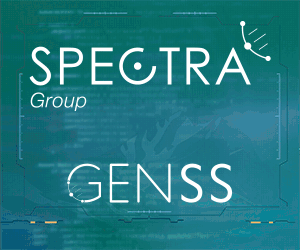The Prime Ministers of India and the UK have agreed joints statements on shared security and prosperity through national resilience and on cyber.
~
The Prime Minister of the United Kingdom, Rt Hon Boris Johnson MP, made an official visit to India at the invitation of Prime Minister of India, Shri Narendra Modi on 21 to 22 April 2022. The Prime Ministers:-
- agreed a joint statement ‘Towards shared security and prosperity through national resilience’
- reviewed progress on the ambitious India-UK Roadmap to 2030 (April 2021)
- resolved to advance the India-UK Comprehensive Strategic Partnership agreed in 2021
The Prime Ministers also issued a separate UK-India joint cyber statement.
India-UK cyber statement, published 22 April 2022:
1. India and the United Kingdom are committed to a partnership that delivers for both countries. Our 2030 vision includes revitalised and dynamic connections between our people and enhanced defence and security cooperation that brings a more secure Indo-Pacific. Through cyberspace there is a digital living bridge that allows our citizens, students and businesses to interact and promote our shared prosperity. As we take advantage of the new opportunities this creates we must also protect ourselves against evolving threats.
2. In May 2021, Prime Minister Modi and Prime Minister Johnson agreed to an Enhanced Cyber Security Partnership. Today, India and the United Kingdom outline our commitment to a joint programme of cooperation to deliver this partnership, focused on cyber governance, deterrence, resilience and capacity building.
3. The rules-based international order must be upheld online, just as it is offline. India and the United Kingdom are concerned by the increased willingness of states and their proxies to undertake malicious cyber activities contrary to identified norms of responsible state behaviour in cyberspace. We will deepen co-ordination on mitigation strategies against Advanced Persistent Threats as well as cooperation on tackling cybercrime.
4. India and the United Kingdom recognise the vital role of voluntary and non-binding norms of responsible state behaviour in reducing risks to international peace, security and stability as reaffirmed by the 2021 reports of the UN Sixth Group of Governmental Experts on Advancing Responsible State Behaviour in Cyberspace in the Context of International Security’ and ‘Open Ended Working Group on Developments in the field of information and telecommunications in the context of international security’. We draw attention to the norms prohibiting the use of cyber tools to intentionally damage or impair critical infrastructure and the obligation of states to respond to appropriate requests to mitigate malicious ICT activity aimed at the critical infrastructure of another state emanating from their territory.
5. Alongside this, we will work to elaborate under the UN framework a comprehensive international convention on countering the use by criminals of ICTs to increase international cooperation on preventing, deterring, mitigating, investigating and prosecuting cybercrimes, ensuring speedy justice for the victims of cybercrime and taking into account the need for appropriate safeguards including data protection. India and the United Kingdom are working in close cooperation under the International Counter Ransomware Initiative.
6. India and the United Kingdom will work in partnership to increase our mutual cyber resilience, taking a holistic and whole-of-society approach. We will complete joint work to identify shared vulnerabilities, and promote effective public-private partnerships, with a view to ensuring decisions on systems design and deployment take into account public safety protections and increasing the awareness and ability of the public and infrastructure owners, to increase resilience against malicious cyber activity. We will continue to work closely with industry and through international standards organisations to ensure Internet of Things connectable devices are secure by design. We will support efforts to increase the availability and diversity of cyber skills in our workforce and promote people-to-people and educational links to enhance awareness in the domain of cyberspace.
7. We recognise that governments cannot meet the challenges of the digital age alone and the private sector plays an important role as developers and implementers of new technologies, and in relation to data management. We will work in collaboration with industry to deliver shared responsibilities to improve online safety and protect users online, working together with multi-stakeholders. We will continue to collaborate closely with digital service providers, social media and telecommunications companies, encouraging cooperation to embed safety in the services they offer while ensuring the protection of user privacy and their cooperation with the relevant government entities especially with the onset of 5G and 6G technologies. We welcome steps taken so far by industry and urge them to redouble their efforts to protect the users of ICTs.
8. India and the United Kingdom reaffirm our commitment to an open, secure, stable, accessible and peaceful cyberspace, which can be enjoyed by all.
~




















